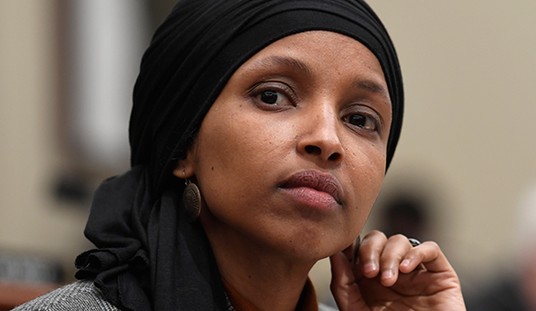As we enter the eighth month of our punk presidency, the left’s desperation to enact the slow but sure evolution to statist health care favored in reality by Barack Obama has reached a fever pitch.
Not coincidentally, boycott fever seems to be sweeping the nation. Two of them, assisted heavily by establishment media coverage, are quite visible. One that is perhaps as effective is largely unrecognized in elite circles. Finally, the most effective one may be a totally unorganized refusal to buy largely lurking behind the scenes.
First, there is the situation with Whole Foods Market Inc. (WFMI). In an August 11 Wall Street Journal op-ed entitled “The Whole Foods Alternative to ObamaCare; Eight things we can do to improve health care without adding to the deficit,” company CEO John Mackey enraged single-payer partisans when he argued that:
The last thing our country needs is a massive new health care entitlement that will create hundreds of billions of dollars of new unfunded deficits and move us much closer to a government takeover of our health care system. Instead, we should be trying to achieve reforms by moving in the opposite direction — toward less government control and more individual empowerment.
He then identified eight things that could be done to reduce government involvement and empower individuals, in the process citing several steps his company has taken in the U.S., Canada, and the UK that are in sync with his ideas.
In a company blog post three days later, Mackey noted that he had not included his company’s name in his originally submitted title (“Health Care Reform”), was speaking for himself and not as Whole Foods CEO, and observed that he was responding to “President Obama’s invitation to all Americans to put forward constructive ideas for reforming our health care system.”
By that time, the founder of SinglePayerAction.org had called for a boycott of WFMI. (Aside: if the various health care plans floating around Washington really won’t lead to single-payer, why aren’t these organizations directing their fire at the president and Congress?) On August 20, the official WFMI boycott site “boasted” (you’ll see later why that word is in quotes) of having 23,000 participants.
Since the company’s next set of financials won’t come out until early November, whether the boycott will have any real effect will be unclear for quite a while. That hasn’t stopped establishment media outlets like the New York Times, the Washington Post, ABC News, and even the BBC from generating glowing boycott write-ups. Opportunists at the United Food and Commercial Workers union, where at least ten executives “earn” at least $250,000 a year, are at least partially funding a coalition of “activists, consumers, and labor groups around the country” who don’t like a company that has been named one of the 25 best companies to work for and where Mackey more than earns his annual salary of a whole dollar.
The WFMI boycott seems not to have harmed the company’s stock, which rose from $27.10 on August 17 to $29.52 nine days later, and was very close to its 52-week high at the time this column was finished Wednesday afternoon. NASDAQ.com’s WFMI company headlines section is devoid of any mention of the boycott’s existence, indicating that at least for now the markets don’t care about it.
Then there’s Glenn Beck. The radio talker and Fox News show host drove the nutroots crazy in late July by expressing his belief that the president is a racist. Barack Obama’s attendance at and support of an objectively racist church run by an objectively racist pastor for 20 years, his characterization of his grandmother as a “typical white person,” and his more recent knee-jerk criticism of a white Cambridge police officer’s arrest of a black friend — while admitting to all that he didn’t even know the facts of the situation — apparently aren’t germane to the accuracy of Beck’s characterization.
The Associated Press’ David Bauder copied a press release — er, pretended to run a news story — claiming that 33 Fox News advertisers had directed that their commercials not air during Beck’s show. Bauder at least partially relied on information from ColorOfChange.org, “a group that promotes political action among blacks and launched a campaign to get advertisers to abandon him.” That group happens to have been founded by current “green jobs czar” Van Jones. Imagine that.
On Wednesday afternoon, I could not find a list of the companies Color of Change claims will not advertise on Beck’s show. Hot Air’s Ed Morrissey reported on August 19 that at least some of the companies supposedly moving their ads from Beck hadn’t been advertising on the show in the first place. It’s possible that Fox News won’t lose even a dime in all of the hubbub. Meanwhile, Beck’s audience continues to be greater than competing shows at MSNBC, CNN, and CNN Headline — combined. His Monday show’s audience nearly doubled the total of the other three. As with Whole Foods, the media coverage parade has been heavy, including the New York Times, Reuters, and a host of business news outlets.
Those same business news outlets and others “somehow” have entirely missed a boycott with at least 15 times more supporters than Whole Foods claimed above. That would be the American Family Association’s boycott of PepsiCo over what it claims is that company’s support of “the homosexual agenda,” homosexual publications, and corporate diversity training that borders on brainwashing.
The AFA’s boycott site claims over 350,000 signed-up supporters, about the same number as successfully boycotted the Ford Motor Company for over two years. Yet a Google News search on “Pepsi boycott” and a Google News Archive search from January 2008 to July 2009 on “Pepsi boycott American Family Association” (each string entered without quotes) show that there has been virtually no meaningful coverage of the AFA’s boycott since it began.
Luckily for Ford, it did what it had to in order to end its AFA boycott in early 2008 — just in time for it to refocus on its business while rivals General Motors and Chrysler slid into bankruptcy and government bailouts. The press also ignored that boycott. Although orchestrating an effective boycott of a company selling one-time big-ticket items is easier than doing it to a diverse corporate consumer-products conglomerate, Pepsi management would be well advised not to be complacent.
That leads me to cite the boycott that no one has organized, but which clearly exists.
It becomes more obvious with each passing month that General/Government Motors and Chrysler have permanently lost a large percentage of consumers who won’t buy a vehicle from a bailed-out and/or state-run company. Recent proof: Neither maker had an entry in the top 10 list of the most purchased vehicles under the cash-for-clunkers program (Toyota and Honda had three each, while Ford had two). GM’s share of sales from clunker trade-ins was only 17.6%, well below its already declining market share.
The press probably won’t recognize the informal GM-Chrysler boycott unless and until the doors shut for the final time at these companies, if even then. They’re too busy promoting usually ineffective boycotts with which they agree.









Join the conversation as a VIP Member